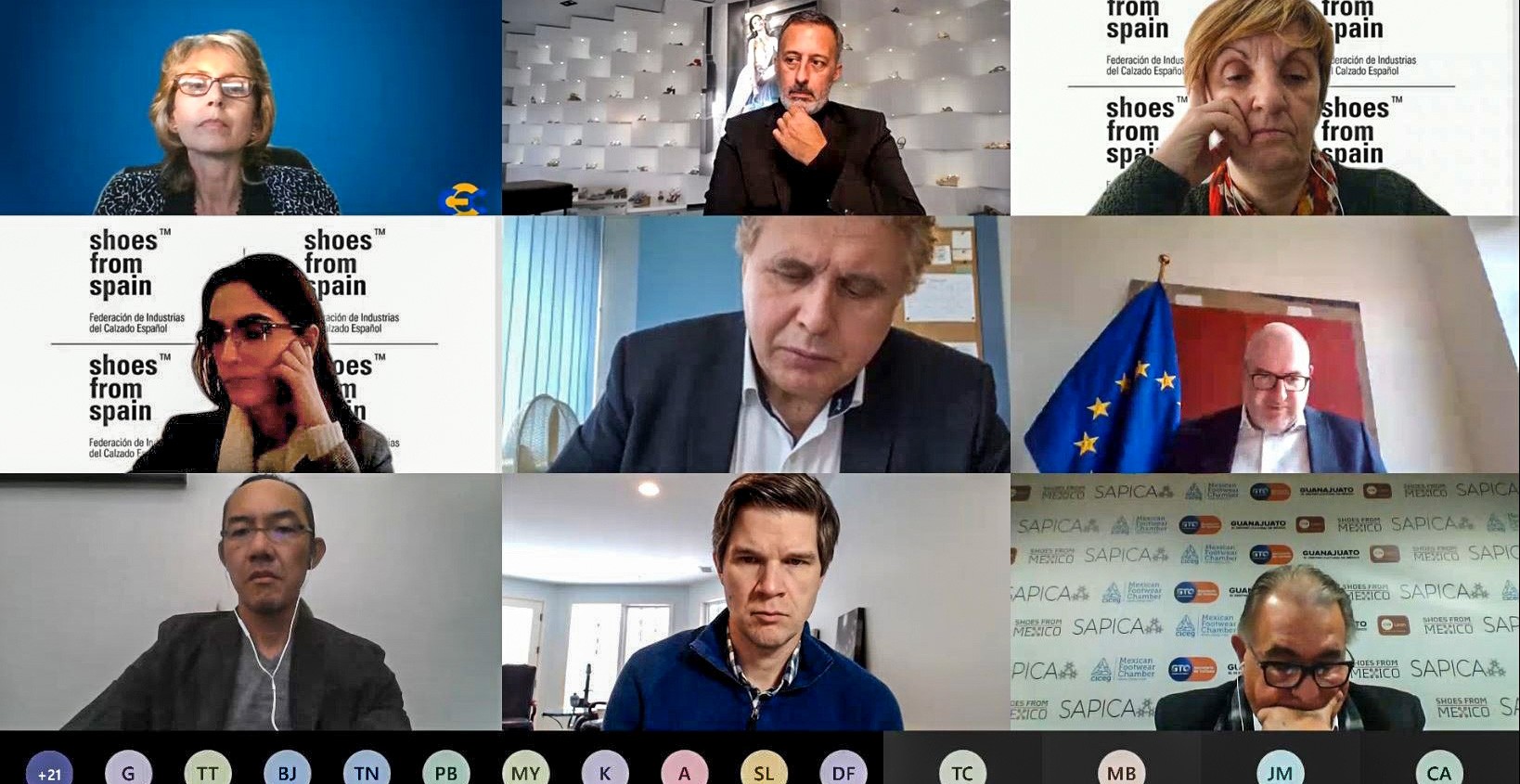


The 5th edition of the International Footwear -IFF- Forum organized by the CEC, was held virtually and brought together 25 associations from 24 countries around the world to discuss current common challenges for the footwear industry.
Possible ways to achieve recovery of the industry crisis COVID-19 were, of course, the focus at the Forum this year.
As the president of the entity, Luis Onofre, said in his opening speech, "We are here today for inspiration: how can we help improve our industry to survive and improve in this new reality?".
Two high-level speakers presented their views on the best strategies to restore growth and established key elements that are expected to contribute to recovery.
On the one hand, Denis Redonnet, Deputy Director General and Director of Trade Enforcement at the European Commission's DG Trade, insisted on the role of open and rules-based trade in underpinning economic recovery.
On the other hand, Achim Berg, senior partner and global leader of McKinsey's clothing, fashion and luxury group, highlighted the strong changes caused by the crisis and how disruptions in the supply chain and consumer behavior affected, which have changed the rules of the game for lasting success.
In turn, Denis Redonnet stressed the importance of not giving in to the temptation of protectionism. He insisted engage with global partners to ensure a level playing field and support an open trade based on clear rules system. “As Mr. Onofre pointed out in his opening speech,” said the speaker, “protection measures, often described as a way to protect national industries from the economic crisis, actually result in less competitive companies in medium and long term. Openness and clear rules will be beneficial to all industries in the EU and around the world where there is a global integration of supply chains ”.
He then underlined that trade policy must be well adapted to the new challenges that emerged from the crisis. Trade will play an important role in the recovery, but only if its approach and the agreements that underpin it are modernized and better adapted to the new reality.
Achim Berg presented the key findings of the study The Business of Fashion / McKinsey Co. "The State of Fashion 2021". He emphasized how devastating 2020 had been for the fashion industry, with total economic profits 93% below 2019 levels. In addition to lower profits and stunted growth, the COVID-19 crisis will cause change deep into consumer demand and behavior, as well as retail models. As Berg noted, "the blueprint for success has changed forever" because the crisis has disrupted the fashion supply chain, from sourcing to the store economy.
“However, all is not lost for the fashion industry in a post-COVID-19 world: e-commerce and digital are creating new opportunities to establish efficient digital strategies and attract new consumers, sustainability is gaining momentum and is it is becoming economically attractive, and competitive companies have an opportunity to access market shares of their peers and expand their operations ”.
He recommended that fashion executives respond quickly and consciously to risk management, as "the decisions made today will shape the future of industry players," he concluded.
“IFF participants sought inspiration to help footwear companies overcome the crisis and advance in this new reality. What emerged from this fifth edition is the relevance of trade in the recovery and the need to respond to protectionist measures clumsy agreeing with global partners clear rules to level the playing field. Companies must understand the opportunities of digitization and sustainable business models and proactively seek public funding to make the necessary investments. This prolonged crisis has had a profound impact on the lives of people and companies that must adapt to a new reality. One should not back down from the idea of change, but embrace it in order to turn the challenge into an opportunity ”, said the press release from the European Footwear Confederation.
RELATED ARTICLE:
Luis Onofre was re-elected as head of the footwear sector in Portugal